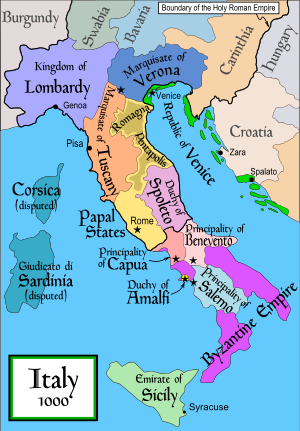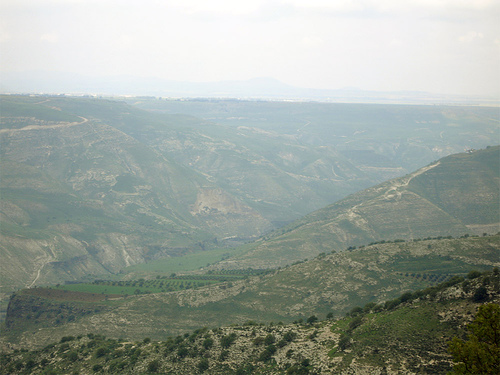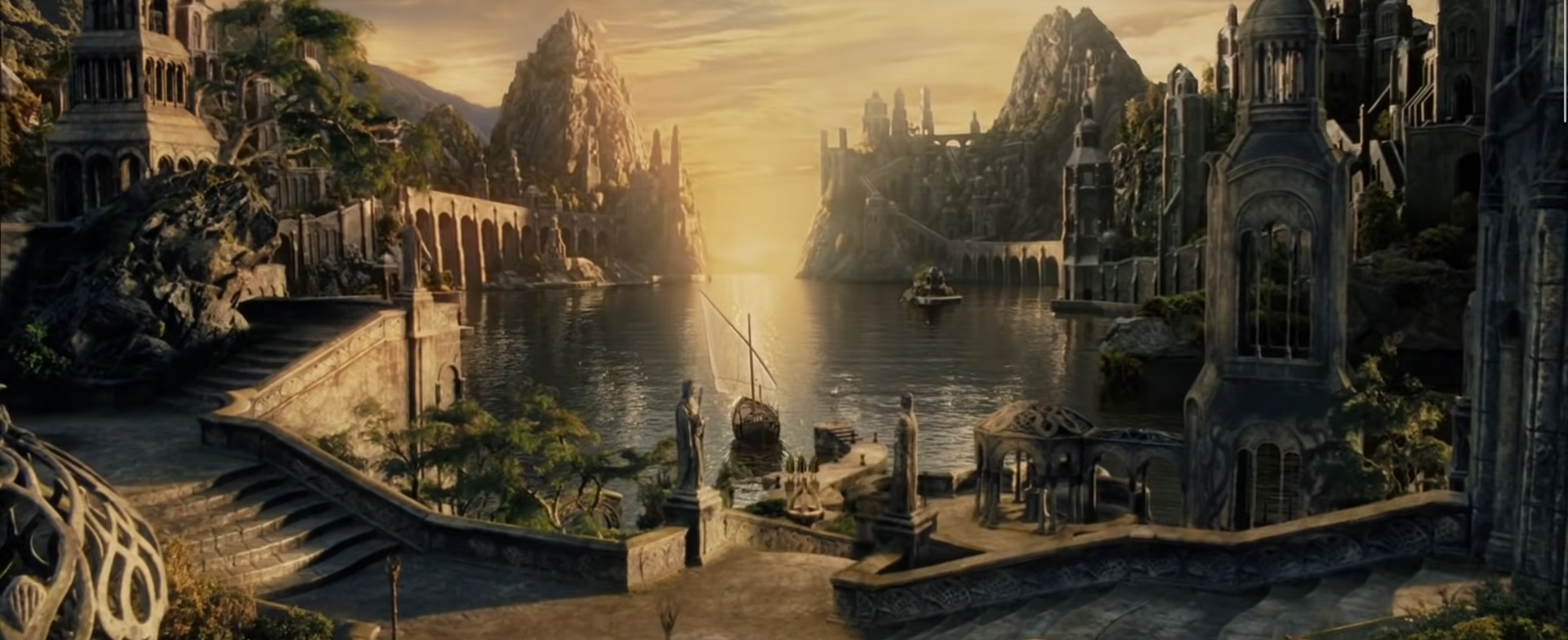Chapter 7: River of Blood
There was no invasion of Mecca in the year following the Second Battle of Yarmouk, to the great disappointment of Alexander Komnenos and other hardliners in the court. Emperor Basil’s rage against the muslims at this time is well documented, but it had not yet crossed into the realm of the irrational. The last great Islamic power of the Eastern Mediterranean had been destroyed, and their coreligionists were incapable of actively threatening the Empire. Provoking an endless eternal war for minimal gain was thus not something the Emperor wished to do, especially as he was keenly aware that it would be a confrontation the Empire could ill afford.
Conventional historiography however tends to ignore the rather uncomfortable economic aspects behind Basil accepting the first peace treaty proposed by the Meccans fearful of an Imperial intervention. They do crow about about the large number of concessions obtained from the Sharif of Mecca, who was acting as the de-facto leader of Red Sea Arabs. The defeat at Yarmouk had knocked out most of their fighting age population, leading them to offer absurd terms like cessation of the the title of “Defender of the Two Holy Mosques” officially to the “Kaisar of Rome”. This in fact resulted in some controversy, as the thought of the Emperor assuming a heathen title was viewed as extremely problematic by quite a few factions in the court. They proposed elevating a Sicilian muslim as an Ethnarch for muslims in the Empire, and then getting the Meccans to confirm him as Caliph and recognize his inferior position compared to the Emperor. Komnenos and Nikepheros Ouranos on the other hand noted that creating a political position for muslims to rally around could potentially have problematic long term impact, and thus it was preferable for the Emperor himself to assume the mantle. In the end, the latter view won out and Basil declared a protectorate over the Red Sea coast of Arabia (without consent of many of the Southerners), including but not limited to Mecca and Medinah.
This resolve was tested almost immediately by an invading horde from southern Arabia that wanted to continue jihad against the Empire, but a combined Imperial-Meccan force easily crushed them and cemented the new order. It was not a particularly comforting one for remaining Islamic states who angrily protested the de facto elevation of Basil to the Caliphate. The ones in the Eastern world of Persia and Central Asia soon recognized the flimsiness of actual Imperial control and begrudgingly acquiesced. Spain and North Africa however were cut off from their holy pilgrimage via the newly conquered Imperial prefecture of Egypt, and slowly drifted away from the remainder of the Islamic world to develop their own views, which they cultivated till their bitter end.
One inadvertent impact of the peace treaty was that it bound the Empire to look after the muslims within its boundaries. This provision was of course de-facto unenforceable and calls for full on ethnic cleansing came from many quarters only to be stonewalled by the Emperor. Imperial historians from the theocractic era onward had attempted to sell this as a measure of Basil’s benevolence. Their rationale was that all the muslims in Egypt surely did not pray for the doom of the Empire five times a day, and many would likely see the error in their ways to enter full communion with Christ after the change in management. Variants of this belief had been commonly accepted for long, for even the most cynical historian could not completely justify an alternate reason for the Empire not purging a defeated but troublesome minority making up 20% of Egypt, in light of both past and future Imperial policy. After all, any deficit in working age population could have been made from the Melkite majority or Anatolia and so only the kindness of the most ruthless Emperor must have preserved Islam in Egypt for the next few centuries.
The problem with this hypothesis turned out to be the Melkite majority assumed by all the historians. Venetian sources have not survived in sufficient quantities to shed light on Egyptian demographics and most remaining fragments focus on the rather unrepresentative city of Alexandria. The Coptic myths of course have always been ignored under the impression that the Patriarchate was spreading lies inherited from more politically troubled days. Questions were raised only after biologists noted a rather disturbingly large overlap between Egyptian and Anatolian DNA, and the opening of the old archives finally put the matter to rest. Far from the 60% majority claims pressed by later Byzantinist historians, the Melkites barely made up 5% of the Egyptian population on the eve of the Imperial invasion, with all the Greek population having faded into the Coptic manifold post the fall of Egypt to the Rashidun Caliphate (doubts remain regarding whether the Greeks made up a majority pre 602 CE or not, despite the oft repeated Byzantinist claims (1)). Unlike the other demographics, the Melkite numbers held roughly steady during the war, courtesy conversions into the preferred Imperial faith that almost offset deaths caused by the war. They had also avoided the worst of the famine courtesy Scythian grain, but were close to only 8% of Egypt’s population of 4 million (down from a pre-war population 6 million on account of losses from the war and the famine[1]). The vast majority of the land was settled by Copts (close to 50% of the population) and muslims (40%), making full on ethnic cleansing completely impossible without wrecking the Egyptian economy top to bottom. Furthermore, there were alarm bells in Constantinople regarding the the future of an Egpyt without muslims, as the Copts would become 80% of the population afterwards, and probably be able to chuck the Melkites into the sea the moment the Empire’s back was turned. Islam was thus only tolerated for the sake of divide et impera : to play the two major communities against each other by giving both sides some fractional benefits that the other lacked to breed resentment. The initial head-tax of the Copts was only three-fifths of the amount muslims had to pay, but the latter were preferentially recruited into the junior civil service via keeping Arabic as a working language of governance [2].
The charge of enforcing this pragmatic policy was however placed on the shoulders of Nikepheros Xiphias. The Emperor had in fact first offered the position to Alexander Komnenos, who had refused to remain strategos of the Orphans. Xiphias, the former Doux of Alexandria was thus viewed as the natural choice for the position and the court had no reason to believe that he would not be successful. The Emperor at any rate would not be leaving Alexandria for a while since the physicians had suggested a stay in warmer climes for Empress Helena, who was still in considerable pain from the injuries sustained outside Edessa. Surely the Emperor, Empress and their young grandchild of eleven could sort out any shortcomings of Xiphias or his administration!
It proved to be a disaster of epic proportions as Basil withdrew to spend time with his wife, handing only a tax target for Xiphias. The number was highly inflated and calculated to ensure that the Imperial treasury came out ahead after the cost of the war was accounted for, with no one expecting the target to be met in the near future. They had not accounted for the zeal of an administrator who had spent far too much time with melkite clergy preaching against Coptic heretics and infidels and had hired melkites of similar views into the administration. The head tax for muslims and copts was raised to absurd levels (four times as much a melkite would have to pay) and their produce was taxed at a rate three times higher than that of the melkites. Contingents from the Imperial army went to “assist” tax collection, which generally involved seizing anything of value from those incapable of paying or selling their families into slavery. Resistance was silenced by the sword, leading to considerable butchery all along the Nile. The geography made it extremely difficult for the rural population to move away from the land for banditry, but anyone close to the borders of Makuria, Arabia or Zirid Africa left as soon as they could. This in turn left a gaping hole in tax collection, which was ameliorated by selling anyone suspected of abandoning the land into slavery. Arab tribes in the Sinai in particular assisted the Empire greatly in catching those attempting to leave for the Levant, and were in turn rewarded with a number of slaves. The markets in Christendom were soon flooded with Egyptian muslims while the Islamic powers received far more copts than needed, sending prices crashing and voiding this method of revenue extraction. As a countermeasure, the migrants into cities were given a choice between forced labor for minimal nutrition and execution. Emperor Basil was greatly inspired by the old lighthouse at Pharos, and was convinced that a similarly grand monument commemorating his conquest was needed. Cheap labor immensely helped with the execution of his vision, resulting in a happy Emperor and despondent Egypt. Alexander Komnenos (himself no moderate) was panicking at the way things are going, and was marching up and down the country with Thephylact Botaniates and the twelve year old Basil the younger (grandchild of the Emperor) to report back to the Emperor regarding how unstable the situation had gotten. Their reports were consistently ignored by the Emperor, who remained oblivious to Melkite masses chanting “Kyrie Eleison” while torching migrant slums. “Every people have a limit,” wrote Lord Komnenos, “and we do not want to be trapped in a country full of people who have nothing to lose.”
The disaster Komnenos had foreseen however did not come to pass due to a curious set of circumstances. The Nile floods failed in 1011, and the demands of Xiphias could not at all be met even if all of Egypt was sold to slavery. The state flared up into rebellion by killing some tax officers, and Anatolian soldiers had to be called in by the Empire. Yet the rebellion had burned itself out before troops were sent to all its centers. Egypt had reached its limit, but fell through the edge instead of truly fighting back. The country had gone through five years of terror first with al Hakim seizing food, a locust horde, rapacious taxation and finally a failed flood. Many people had lost hope and descended to nihilism, with Imperial soldiers reporting that there was no opposition in many cases, even when facing execution. Disturbing reports of mass suicides[3], infanticide and cannibalism came far too often for even the negligent Emperor to ignore, and Xiphias was summarily fired for the whole episode.
Komnenos this time did not refuse the offer to rule Egypt, and he quickly assembled a team of former Fatimid officials to determine the extent of the problem. The prognosis was quite grim, with Egypt’s population cratering to 2.5 million by the end of the year and was seemingly in free fall. As an emergency measure, the draconian tax rates were eliminated in favor of lower taxes that only charged Copts 150% more than Melkites for produce, and Muslims 170% (with the extra on account of losses from Hajj). The head tax was lowered considerably as well, although Komnenos (himself no bleeding-heart liberal) refused to do away with the idea completely. He instead called for a progressive measure for the Copts and Muslims, raising the rate with number of children in a family, till a point where a family could not afford more than four children. The melkites on the other hand got a regressive measure where rates were slashed for large families, and those with six children or more above the age of five were given a small subsidy. The practice of selling non-compliant population to slavery was also abandoned, although the people were still conscripted as free labor for the state to pay their dues. Finally, tax collection in kind was permitted in order to ensure that inability to get species was not the problem (with the grain being sold to Venetians, Genoese and Provencals).
Komnenos was well aware that these measures only slowed down population decline, and could not completely reverse it. An empty Egypt would not be awfully difficult for the Zirids or Makurians to conquer (both sides having done some saber rattling during the famine), leading him to conclude that Egypt needed new blood faster than the Melkite church could provide (despite mass conversions that led to it becoming 25% of the population by that point). Xiphias had nominally allowed landless urban poor from the Aegean to migrate to Egypt and acquire land but not too many had taken advantage of the scheme. Komnenos aggressively recruited settlers by having all the slums in major Aegean cities be forcibly broken up and the inhabitants transported to Egypt (where they were placed in Upper Egypt, close to the Makurian border). This was not quite enough, and he forced through a controversial decree by which all Aegean islands other than Rhodes were to be emptied of people to drag them all to Egypt. Meanwhile, all the Greek churches under the Constantinople patriarchate received large numbers of tokens to distribute to landless second sons and like, with each token giving free passage to Egypt from the nearest major port along with promise of new land. It was not a difficult promise for Komnenos to meet as considerable sections of Egypt lay completely empty after the last villagers were massacred. All told, something close to one million out of the twelve million people in the core Imperial territories (Aegean and Anatolia) migrated to Egypt from 1011 to 1030, most staying permanently for the land. Most of the transports were paid for with Egyptian revenue that had picked up in Komnenos’ reign, as the governor tried to invest more into the province than his predecessor. This wound up creating a large labor shortage all over the remainder of the Empire which was filled with Slavic and Syrian migrants, who quickly assimilated into mainstream society within a few generations, leaving no apparent major change in the Imperial core. Egypt itself of course was irreversibly changed, in ways we are only getting to understand today.
Ecclesiastical issues also propped up courtesy the demographic issues that Egypt was ill prepared to handle. The darkly nihilistic turn of the populace was countered with large infusions of cash into mosques and the coptic church in order for them to tend to their flock (over the howling protests of the melkite Alexandria Patriarchate). Nonetheless, the migrants were almost universally Nicene-Chalcedonian and thus nominally under Alexandria. However Alexandria did not have the infrastructure to support so large a flock (especially when it came to Greek speaking priests), and Komnenos thus called upon Constantinople to send clergy. The highly educated previous generation produced plenty of willing priests (even from older married men tired of family life), allowing Constantinople to stuff the parishes with loyalists who ensured the migrants remained Greek (and indeed, radically hellenized local melkites). The Alexandria patriarchate would be effectively reduced to a junior partner of Constantinople by 1020, a historical reversal of position. That in any case mirrored the fate of Egypt itself: an old and ancient civilization falling to younger upstarts, and finally being reduced to an extension of the Greek state. The copts and muslims of Egypt would continue to limp on for years, clinging onto their years of dominance while the Empire could afford to look outwards. We know today that a day however did come when the energies of the state were directed inwards, and the minorities paid heavily in the era that followed. We will discuss the final solution against Islam and the coptic wars in their appropriate place, but it is important to realize that those tragedies were merely the second and third acts of a darker tale which made Egypt the most homogenous of modern Imperial prefectures- a story whose beginning lay in the much exalted reconquest of Egypt.
Notes:
[1] Made much worse by the Caliphate diverting food to the Levantine front and needlessly massacring villages that did not fully cooperate. Of course, the Imperial army burning fields and seizing any and all supplies did not help matters.
[2] Temporarily only. Knowledge of Greek was made compulsory by 1030, and support for other languages removed completely by 1060.
[3] We now have reason to believe a large part of it owes its existence to apocalyptic millenialist preachers, which caused many people to leave for the next world which could not be any worse than the one they left behind.
Vasilas’ notes:
(1) In OTL we know this was definitely not true outside the delta, and Egypt was majority miaphysite. Good luck getting the current Imperial government to buy that, and not too many folks have the guts to go against Constantinopolitan doctrine when it comes to history. Cuts to funding and being denied access to archives/archaeological sites is the barest minimum of what can happen.





